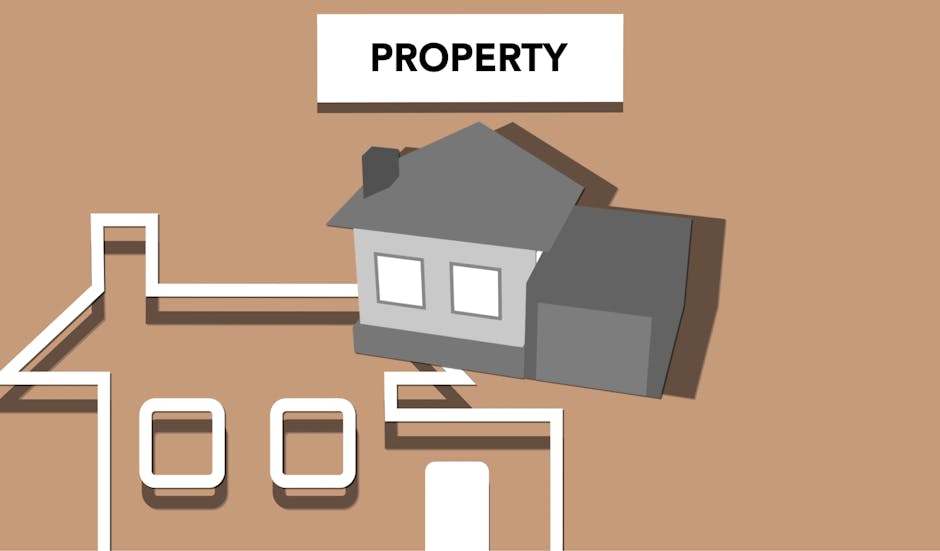Introduction
Ah, loans. Those financial lifesavers that exist to bail us out when we need them or to help us advance to that next step in life, whether it’s buying a house, getting an education, or even starting a business. A loan, in its simplest form, is a sum of money that individuals or businesses borrow with the promise and obligation of paying it back, oftentimes with interest.
Loans come with a tag of importance that’s too weighty to brush aside. You see, they can open doors bigger than the width of your imagination, assisting you in purchasing assets you wouldn’t ordinarily afford, or providing an avenue for you to sort out financial emergencies. However, like a double-edged sword, they can also plunge you into an abyss of debt if not well-managed or understood.
That’s why the relevance of understanding different types of loans cannot be overstated. From personal loans and home loans, through auto loans, student loans and small business loans, even down to payday loans – each bear their distinct sets of rules, benefits, and drawbacks. Clear as mud, right? Well, don’t worry, this article aims to demystify these various loan types, making the complex world of finance a tad bit less intimidating. And who knows? Next time you need some assistance, you’ll be well-equipped to make a decision that can make or break your financial health. After all, knowledge is power.

Personal Loans
Personal loans serve as versatile financial instruments that can be used to fit a wide variety of needs. Unsecured by any collateral, these loans are primarily based on a borrower’s creditworthiness, payable over a specified period and interest rate. Their usage can range from managing large one-time purchases or expenses, such as home renovations, wedding expenses, or even consolidating higher-interest debt into a more manageable payment.
The benefits of personal loans are considerable. With competitive interest rates, typically lower than credit cards, they provide an affordable means to manage larger expenses. Moreover, the set monthly payments and fixed repayment timeline offer clarity for budget planning. However, these loans also have their drawbacks. Borrowers may face prepayment penalties or origination fees, and without disciplined repayment, personal loans can contribute to growing personal debt.
Choosing a personal loan requires careful consideration. Before diving in, one should compare interest rates, fees, and terms from various lenders. Apart from comparing the Annual Percentage Rate (APR), set parameters on how much one is willing to pay each month by considering the loan term. Remember, a longer loan term means smaller monthly payments, but a larger total repayment over time due to accrued interest. One should understand all these aspects before signing the loan agreement to ensure it’s both manageable and beneficial in the long run. Additionally, learning how this type of loan could impact one’s credit score is also a worthy exercise. Every financial decision, after all, contributes to a bigger picture embodied by our financial health.

Home Loans
Delving into the realm of home loans, it’s crucial to firstly understand their purpose. When the dream of owning a property looms large but falls prey to the scarcity of immediate funds, home loans can bridge this monetary deficit with finesse. These loans offer the assistance needed to purchase or construct a house, upgrade or repair an existing one, or even invest in real estate.
In terms of their benefits, home loans can be a godsend. They bring homeownership within reach, even when it feels financially implausible. The repayment is usually structured long-term, lowering the burden of hefty monthly payments. Plus, they can also enhance a borrower’s credit history, granted the installments are discharged accurately and punctually.
However, to tap into these benefits, you have to consider a few variables. One, your income level and credit score directly influence the amount of loan you can borrow and the interest rate attached to it. Two, differences in home loan types – fixed, adjustable, or interest-only loans – can have a significant impact on your repayment strategy. And three, the length of the loan term can affect both monthly payments and the total interest paid over the life of the loan.
To ensure favorable home loan terms, a few tips might come handy. First, conduct extensive research to compare rates and charges from different lenders. Don’t hesitate to negotiate – just a fraction of a percentage point could save thousands over the term of the loan. Second, scrutinize your credit report and rectify any errors before applying – an immaculate credit history often translates to lower interest rates. Lastly, keep a tab on your Debt-to-Income ratio. Maintaining this under 36% can enhance your odds of securing a home loan with favorable terms.
Owning a property is a substantial financial commitment. But with requisite knowledge about home loans, we can transform this daunting proposition into a manageable, even enjoyable, journey.

Auto Loans
Making the decision to purchase a car is a significant step for many people. It often entails writing a sizable check or feeling the burn of an intense hit to your savings. This is where auto loans enter the picture as your savvy sidekick – financial tools devised specifically to fund your vehicular aspirations.
Auto loans, as the name implies, are loans taken out to finance the purchase of a vehicle. You borrow money from a financial institution, and they pay the full price of the vehicle upfront. You then repay the loan over a defined period and with a fixed or variable interest rate.
The key benefit of an auto loan is its allowance for immediate ownership. Rather than saving for years to buy a car outright, you can drive your dream car home almost immediately. This option is particularly lucrative when you need a car for pressing necessities like daily commuting or family needs. Plus, structured payments can facilitate better budget management.
However, auto loans don’t ride down an unblemished highway. One notable drawback is the likelihood of ending up ‘underwater’ or ‘upside down’ on your loan. This happens when the car depreciates at a faster pace than your loan balance decreases, leading to a scenario wherein you owe more on your loan than the vehicle’s worth.
Also, monthly repayments for an auto loan can significantly impact your budget and may strain your finances if not carefully managed. Not to mention, interest over time can make your car cost more than its original price.
When selecting an auto loan, here are a few recommendations. Do your homework and shop around for the best deal. Compare interest rates and terms from various lenders. Don’t be seduced by lower monthly payments spread over a longer period – you could end up paying much more in interest. Always consider the total cost of the loan. Finally, try to make a sizeable down payment – it can help you secure a lower interest rate and reduce your monthly payments.
In car terms, just as you wouldn’t buy a car without considering its fuel consumption or safety record, don’t settle on an auto loan without understanding its terms and implications. Reserve a front seat for financial prudence, and you’ll be well on your way to a smoother ride in your new wheels.

Student Loans
Let’s talk about a type of loan that bridges the gap between dreams and reality – student loans. More apt for this conversation is probably calling them the academic linchpin in your financial strategy. Student loans are designed specifically for individuals seeking financial assistance to cover higher education costs, from tuition fees to living expenses. They tend to come to the forefront when scholarships, grants, and personal savings fall short.
Why student loans, you ask? Well, the greatest advantage of student loans, the thesis statement if you will, is their ability to make higher education accessible to those who might not otherwise afford it. Student loans can be pegged as gateways to opportunities, opening doors to potentially higher earnings and improved career prospects in the future.
However, the Achilles heel, the possible downside, is that they instill a hefty financial burden on students before they even start their professional journey. Over time, these loans can accrue considerable interest, elongating the repayment term and potentially leading to years, even decades, of indebtedness. The volume of student loans in the U.S. alone is a testament to this downfall, towering at a staggering $1.73 trillion.
So, if you’re on the boat of considering a student loan, here’s your anchor – be a smart borrower. Shop around different loan providers to understand the interest rates, terms and conditions, and repayment options. Make sure to grasp the difference between federal and private student loans and their respective impacts.
Keep an eye out for grants and scholarships first before heading the loan path. Remember, the goal is to supplement your education fund, not replace it entirely with debt. Finally, understand the commitment student loans entail, and visualize a realistic repayment strategy. After all, a huge part of financial responsibility entails not biting off more than you can chew. It’s your move now, make it count.

Small Business Loans
The world of entrepreneurship is exciting, no doubt, but it also comes with its fair share of challenges. One of the biggest challenges that small businesses face is obtaining the necessary funding to get off the ground or scale operations to the next level. This is where small business loans come in.
Small business loans are designed specifically to meet the financial needs of business owners. These loans might be used for a variety of reasons like funding the start-up costs, buying new equipment, or even expanding business operations.
The advantages of small business loans cannot be understated. For starters, they can provide a much-needed cash injection that could help a business seize new opportunities or manage cash flow issues. They can also help establish a positive credit history, which is pivotal for future financial endeavors. But here’s the kicker- it’s not all rosy. Business loans also come with drawbacks that need careful consideration. For instance, repayments may strain cash flow or profits, and failing to repay the loan could harm your credit rating and your business’ reputation.
So, what should you consider before applying for a business loan? As a business owner, it’s crucial to have a well-thought-out plan before you dive into the world of loans. Top of your list should be a compelling business plan that justifies the need for the loan and explains how it will be used. You also need to determine the type of loan that suits your needs and scout for a lender offering the most favorable terms. And finally – and this is the big one – understanding your ability to repay the loan. Be realistic about your financial situation to avoid piling on unmanageable debt.
So, to put it in simple terms, borrowing to build your small business can be a wise move, but it needs to be approached with the right amount of diligence and caution.
As with any other type of loan, understanding the ins-and-outs of business loans is crucial. Knowledge isn’t just power – in the world of finance, it’s also the best way to secure long-term success. Remember, a loan isn’t just a transaction; it’s a commitment that can either skyrocket your business growth or tie it down.

Payday Loans
Ah, payday loans. Squeezing you out of a pickle since, well, you were last in a pickle. For those in the dark, a payday loan is a short-term, high-interest loan, generally for $500 or less, that’s designed to bridge the gap between paychecks. These nifty little lifesavers are typically due on your next payday. Hence the name, smarty pants!
On paper, they sound straightforward enough, but they can be risky. When you’re next payday rolls around, you may find the loan repayment knocks you off balance again. And if you can’t meet the repayment? You’re potentially snowballing into debt, with fees and interests piling on top like the world’s least appetizing sandwich.
Don’t get me wrong – payday loans can serve a purpose, and they can be handy tools when used responsibly. It’s about knowing how deep the water is before you jump in. You know, common sense.
So, let’s say you want to take out a payday loan – here’s a nugget of wisdom for you. First, read the room. Or, more specifically, read the terms. Understand the interest rate, the repayment terms, and any fees involved. Do that, and you can avoid being swept up in the vicious cycle of debt.
Remember, the purpose behind a payday loan is to use it as a last resort when unforeseen expenses occur, not as an excuse for a spring shopping spree. So, pull on your thinking cap, make an informed decision, and always handle your payday loan responsibly. It’s never as simple as easy money, but with a little wise wizardry, you can make it work for you.

Understanding Interest Rates
When it comes to loans, the concept of interest rates can make a significant difference. So, let’s explore what an interest rate is and why it matters.
What is Interest Rate?
Simply put, an interest rate is the cost of borrowing money expressed as a percentage of the loan. Depending on the loan type and the lender, these rates can significantly vary.
Fixed vs. Variable Interest Rates
Understanding the difference between fixed and variable interest rates is crucial.
-
Fixed Interest Rate
- This rate is constant. It remains the same throughout the entire lifespan of the loan, providing borrowers with a predictable and stable payment schedule.
- It doesn’t change with market fluctuations, which can be both an advantage and a disadvantage depending on the situation.
-
Variable Interest Rate
- This rate changes according to the market conditions.
- Borrowers could possibly pay less interest if market rates decrease. However, if market rates spike, the rate will increase as well.
Preparing for Negotiation
When negotiating interest rates, be prepared with the following:
- Current Market Rates: Knowing the current interest rates in the market gives a significant edge.
- Your Credit History: Being aware of your credit history could significantly impact your bargaining power.
Seeing the Big Picture
While the rate itself is important, don’t forget to consider the following:
- Annual Percentage Rate (APR): This includes not only the interest rate but other costs like broker fees and closing costs.
Negotiating for a favorable interest rate can be challenging. However, approach it with the right preparation and a clear understanding of the underlying concepts. Armed with this knowledge, you’ll be able to make the best possible decisions.

The Importance of a Good Credit Score
Your credit score plays an instrumental, perhaps the most crucial, role in determining your eligibility for a loan. Moreover, it also influences the terms (like interest rates) on your loan.
What Does Your Credit Score Reflect?
Your credit score reflects your creditworthiness—that is, your likelihood to repay borrowed money. Remember, banks and money lenders aren’t close friends—they need proof of this before they can loan you the cash. But, your score isn’t merely a number. It’s more like your financial résumé, illustrating your history around managing debt and making prompt payments.
What Can a High Credit Score Do For You?
So, the higher your score, the more appealing you are to lenders, a situation similar to high school popularity, but with higher stakes. A high credit score often equates to lower interest rates and better terms on your loan—these benefits can save you a substantial amount of money in the long run.
How To Maintain a High Credit Score?
But, how do you keep that score friendly? Here are some good practices:
- Start by making payments on your existing loans and credit cards promptly.
- Try to keep your credit card balance low.
- Avoid applying for new credit too often.
The Importance of Regular Checks
Importantly, it’s vital to regularly check your credit reports for any errors. These reports are what credit scoring models use to calculate your score, so any inaccuracies could mean a lower score than you deserve. Think of it as checking your mirror to ensure your physical appearance matches your feeling—only this time, it’s your financial health that’s at stake.
So, form a friendly relationship with your credit score. This relationship might just help you acquire your dream house, car, or even start your business—most importantly, with sensible terms.

Conclusion
Understanding the ins and outs of different loan types might seem harebrained at first, but once you peel back the layers, it’s simpler than you’d think; it’s really all about getting to know your options before making a choice. From personal loans to home loans, each variety has its own suitability depending on what you need, your financial capability, and your long-term plans.
It’s not rocket science, but financial responsibility is a firm step in handling any loan. Running the numbers, maintaining a solid budget, and considering unexpected scenarios are part and parcel of sound financial planning. This helps buffer you from unforeseen setbacks while keeping repayments feasible.
Beyond the world of interest rates and repayments, remember your credit score is a VIP. It can be a significant influencer when your loan applications are reviewed. It’s a bit like your reputation in the financial realm; keep it clean and you’ll be a more inviting prospect to lenders.
In the end, it’s all about making informed decisions. Whether it’s ginormous like a house or as small as a personal expense, loans can be just the financial tool you need when handled with care. Don’t rush it. Take a deep breath, scrutinize your options, and plan meticulously. Remember, it’s never just about getting the loan; it’s also about your capability to pay it back without losing your shirt.
And there you have it, folks! You’ve graduated from Loan School 101. Go forth and make those loan decisions with confidence and ace financial responsibility.